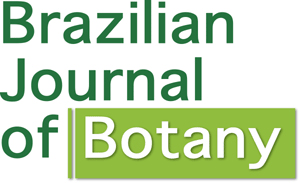Billings and Guarapiranga Reservoirs were deeply affected by environmental disturbances, which more evident consequence are the cyanobacterial blooms. Microcystins are the most common cyanotoxin in freshwaters and more than 70 types are known. Different methods for microcystins analysis in water can be used, among which ELISA and HPLC are the most frequently employed. However, less sophisticated and more economic methods can also be used. This is the case of planar chromatography (thin-layer chromatography) method previously used in cyanotoxins purification but gradually replaced by others. Posterior optimization of the microcystin chromatography conditions and because of its simplicity, rapidity, efficiency and low cost, this method is again considered an option for the analysis of microcystins and nodularins. Considering the importance of Billings and Guarapiranga Reservoirs for drinking water supplies and the few scientific data about cyanobacteria and cyanotoxins in these water bodies, the aims of this work are to analyze the biodiversity of cyanobacteria in the Billings and Guarapiranga Reservoirs and the detection of dissolved microcystins in the water. It was possible to identify 17 species of cyanobacteria, 9 of them being potentially toxic. In Billings Reservoir Microcystis aeruginosa (Kützing) Kützing and Cylindrospermopsis raciborskii (Woloszynska) Seenayya & Subba Raju are the most common species, while in Guarapiranga Reservoir only M. aeruginosa was considered as a common species. Microcystins were detected in all Billings Reservoir samples and in only one sample from Guarapiranga Reservoir.
cyanobacteria; drinking water; microcystins; planar chromatography; reservoirs








